On the Day of Ukrainian Peacekeepers: Zepa is an underestimated feat
Kyiv • UNN
The events in question took place in 1995 during the Bosnian civil war. Between July 11-22, 1995, the Bosnian Serb army committed genocide against more than 8,000 Bosnian Muslims in Srebrenica. Its next target was the nearby enclave of Zepa, which was guarded by 79 Ukrainian peacekeepers from the 240th separate special battalion.

On July 15, 1992, for the first time in its history, Ukraine sent its military to participate in an international peacekeeping operation. This mission marked the beginning of Ukrainians' participation in defending peace, security and human rights around the world. Its historical significance is hard to overestimate. Thanks to the courage and resilience of the Ukrainian military, thousands of lives were saved - the residents of the village of Zepa in Bosnia. UNN talked to the participants of the first Ukrainian peacekeeping mission, who participated in the protection of civilians in the former Yugoslavia.
The events in question took place in 1995 during the Bosnian civil war. Between July 11-22, 1995 , the Bosnian Serb army committed genocide against more than 8,000 Bosnian Muslims in Srebrenica. Its next target was the nearby enclave of Žepa, which was guarded by 79 Ukrainian peacekeepers from the 240th separate special battalion. But first, let's talk about the events that took place in 2010.
"You are wanted by an international tribunal" or an unexpected meeting with Karadzic
At the end of 2010, Oleksandr Vyshnivskyi, who took part in a peacekeeping mission in the former Yugoslavia in the 1990s, received a strange call from the police - they urged him to come to the station, explaining that nothing terrible had happened, but that they had an important conversation to have.
"You're wanted by an international tribunal," Vyshnivsky heard the police say. Then he remembered that a few months earlier he had received a call from a foreign number - at first they spoke in English, and then a Russian-speaking employee was called. They explained to Vyshnivskyi that they were calling from the Hague Tribunal, where the trial of Bosnian Serb leader Radovan Karadzic was about to begin, and they wanted to invite Oleksandr as a witness. But since then, he has not been contacted again. Instead, the International Criminal Tribunal sent an official request to law enforcement officials to have the Ukrainian participate in the trial.
Then, as the peacekeeper told UNN, the events unfolded very quickly - in one day, a visa was opened and soon he reached Amsterdam by plane. There, Vyshnivsky learned that he would have to meet Radovan Karadzic in prison before participating in the trial.
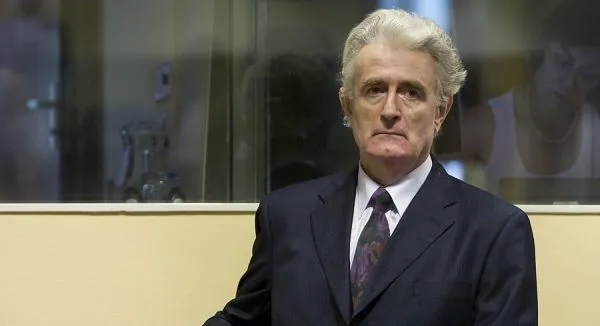
"We arrived at the prison. They gave me a Russian interpreter. We went into the cell. Radovan Karadzic also came in with a basket - he brought juice and cookies. He sat down at the table with his interpreter. We were waiting for the prosecutor to come.
I want to say that Radovan Karadzic speaks Ukrainian. He speaks Russian and Ukrainian, too. And he started asking questions and saying that this was a setup, that I was brought here on purpose. When we were in Bosnia, we were given passes and wore them over our uniforms. We had to carry them with us. I still have it, and it was purely by chance that I threw it into the purse I was taking with me. I showed him this pass, that I was there.
We probably talked to him for about 10 minutes in Ukrainian and then in Russian, and then the prosecutor came. Then the prosecutor asked questions. Then Kardzic spoke only Serbian," Vyshnivsky told UNN.
The next day, a court hearing was held, at which Vyshnivsky answered the judges' questions about where he had been as a peacekeeper and what he had seen.
"Then Radovan Karadzic asked me if I really saw people being shot.
I say that I did not see the shooting, but I saw the bombing of villages. I saw mines and shells exploding - I saw it all with my own eyes. But I did not see people being shot," said the peacekeeper.
Why was the Ukrainian military summoned to the trial of Karadzic? And why were the events in Rzepa of historical significance?
Peacekeepers
The first group of Ukrainian peacekeepers sent to the former Yugoslavia consisted of 42 soldiers. These were soldiers of the 240th separate special battalion. Later, the Ukrainian peacekeeping mission was expanded. Our "blue helmets" operated within the framework of the UN forces deployed in the country - UNPROFOR (English United Nations Protection Forces, i.e., the United Nations Security Forces), which were supposed to facilitate a political settlement of the military conflict.
From the very first days of their stay in Bosnia, Ukrainian peacekeepers found themselves in the midst of the war - they took an active part in the fighting and protected civilians. In addition, the Ukrainians were tasked with escorting humanitarian cargo, protecting the airport, and restoring the power grid.
Captured
After the deployment of UNPROFOR forces in the spring of 1993, "security zones" were established in the enclaves of Srebrenica, Zepa and Gorazde in eastern Bosnia. Security control in Zepa was entrusted to Ukrainian peacekeepers. The enclaves were surrounded by territory controlled by Bosnian Serbs. On March 8, 1995, Bosnian Serb President Radovan Karadzic signed a secret "Directive 7". The main goal set by Karadzic for the Serbs was to eliminate the above-mentioned enclaves inhabited by Muslim Bosnians. The implementation of these plans was entrusted to the Chief of Staff of the Bosnian Serb Army, Ratko Mladic. The Serbs began active hostilities.
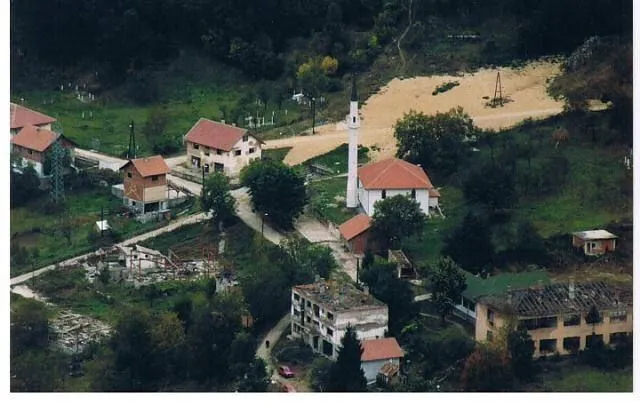
In May 1995, in response to the actions of the Bosnian Serb army near Sarajevo, NATO aircraft bombed several Bosnian Serb army weapons depots. Mladić's response was to massively hostage peacekeepers, who were used as human shields against NATO air strikes.
Serbs managed to capture at least 280 peacekeepers, including Ukrainians.
Reserve Colonel Volodymyr Kriuchkov, who was the commander of the 1st Special Company of Ukrainian peacekeepers at the time, says that Bosnian Serbs attacked two Ukrainian checkpoints near Sarajevo.
Oleksandr Vyshnivskyi, who was also among the prisoners, says they spent 11 days in captivity.
Kryuchkov and Vishnivsky say they were kept on water, poisoned by dogs, beaten and chained to poles. Hiding behind peacekeepers, the Serbian military tried to avoid NATO bombing.
"At that time, our people were captured, the French were captured, the Spaniards were captured. Everyone was captured except the Russians. The Russian battalion was on the Serbian territory of Sarajevo, and we were on the Muslim territory of Sarajevo. Russians are "brothers" and "friends," so the Serbs did not touch them. They touched us, they touched the French... they even had a sniper mission on the streets of Sarajevo, snipers were shooting... the French were killed. The reports were always saying: French, American, French, American - death," Kryuchkov says.
Kryuchkov says that he once asked the Serbs why they were taking Ukrainians prisoner, saying that we were all Orthodox. The answer was unequivocal - there is an order.
According to Vyshnivsky, thanks to the participation of the Ukrainian diaspora, which brought food to the prisoners, as well as perseverance, one of the hostages managed to escape from captivity. He contacted the command and eventually the peacekeepers were released.
But the challenges did not end there.
Events in Zepa
The village of Žepa, located in the eastern part of Bosnia, not far from Srebrenica, became an enclave surrounded by Serb troops on all sides. The village's population was 90% Muslim. When the UN established one of the so-called "security zones" there in 1993, it made it possible to send humanitarian supplies there.
In the summer of 1995, when the Serbs launched their offensive against the enclaves, 79 Ukrainian peacekeepers were stationed in Rzepa, and the village was their area of responsibility.
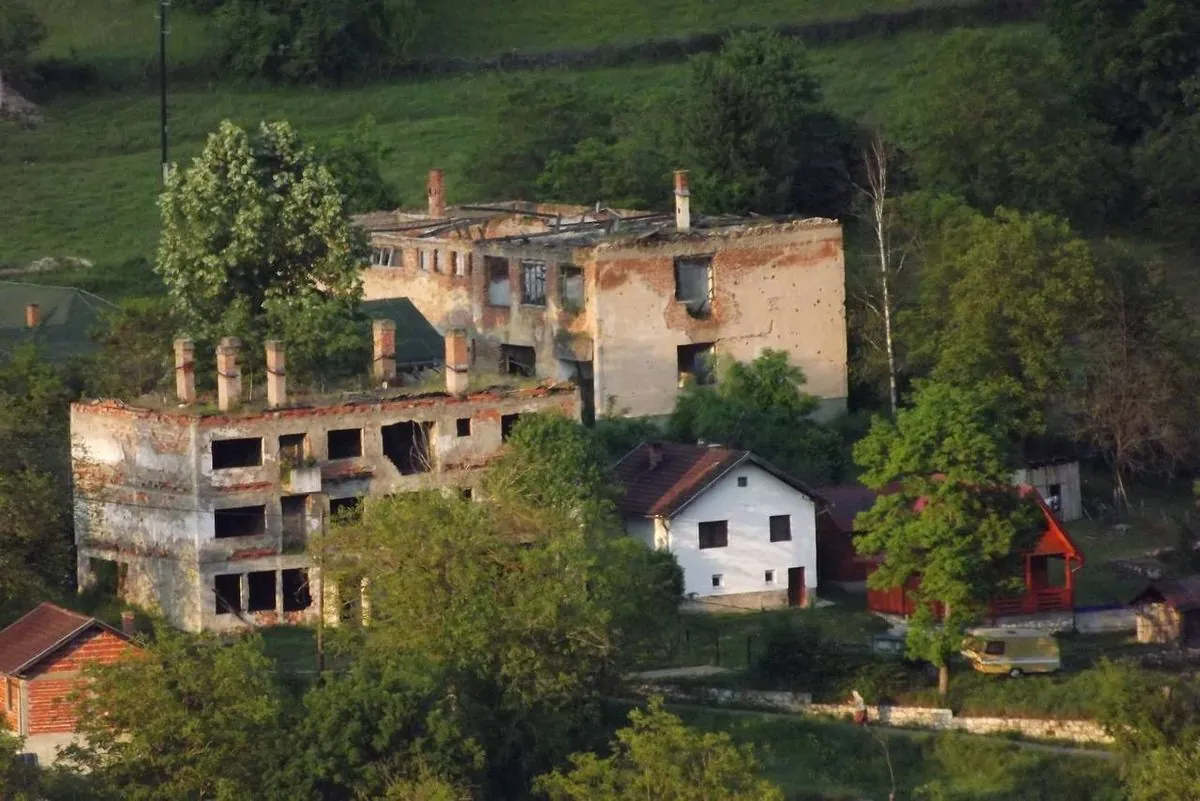
At the time of the offensive, the Serbs had blocked all the routes of aid supply leading to the village. On July 7, the first active shelling began - first, the positions of the peacekeeping contingent came under fire, and on July 10, Zepa itself.
On July 11, Serbs captured Srebrenica. The peacekeepers who were there retreated after negotiations, and the city was at the mercy of the invaders. The events that unfolded in Srebrenica over the next few days and led to the deaths of more than 8,000 Muslim men have been recognized as genocide. On July 13, Radislav Krstic, one of the Serbian army commanders, ordered an attack on the village, where some of the residents of Srebrenica were able to evacuate.
From the refugees, the residents of Zepa learned about the terrible events in Srebrenica and realized what awaited them. As Ukrainian peacekeepers recall, women and children came out to them and begged on their knees not to leave. Not to leave them alone, without protection. The local men demanded that the peacekeepers defend the village with them. Instead, the Serbs sent an ultimatum to the Ukrainian peacekeepers: you have to leave Zepa. And then the Serbs intensified the shelling and the peacekeeping contingent, which was effectively cut off from the big world, was forced to act at its own discretion.
"After Srebrenica, Serbian troops went to Zepa. They laid siege to it. We were under siege for two weeks. We had already run out of food, everything was powered by a generator. The shelling was such that 200 mines fell on our territory during the day. There was no fuel, no food. But we held on. No one could come to us because we were under siege. No Red Cross, no help. Every evening we got in touch at 17:00 and reported the situation. We went out for three minutes to avoid wasting fuel," Andriy Khlusovych, a participant of the events, told UNN about those events.
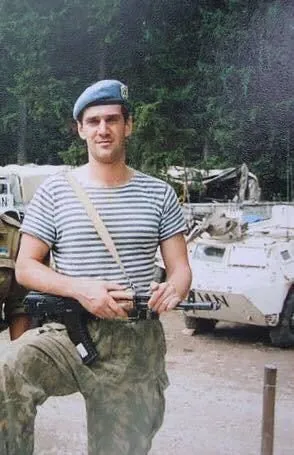
But the Ukrainians did not plan to retreat, because they realized that only their presence was holding back the Serbian army to some extent.
Finally, on July 23, the deputy commander of the Sarajevo sector, Colonel Mykola Verkhoglyad, was able to arrive in Zepa. He began negotiations to evacuate the civilian population.
The negotiations were difficult, as representatives of the Serbian side could not agree on the terms of the evacuation even among themselves.
"I told them that you all want to shoot me here. I will take my people and civilians out, and you can fight here," Verkhoglyad later recalled in an interview with the media.
Meanwhile, the situation was getting tense.
"In one hour, 60 mines fell on the Zhepa enclave. There is fire from tanks, machine guns and snipers. The police building was shot at, many people were killed and wounded... I expect the company to be captured at night. There is no fuel and water", - from the report of Ukrainian peacekeepers of July 24, 1995.
In the end, a representative of the Muslim community of Zepa signed a surrender with the Serbian military on the condition that civilians were evacuated. By the way, not all Bosnian Serb leaders agreed with this decision, which eventually deepened the split between them.
On July 25, the evacuation of civilians began, with the Blue Helmets coming to the aid of Ukrainians. An important condition for the evacuation was that civilians boarded the buses with their families - men, women and children. Each bus was also accompanied by at least one peacekeeper.
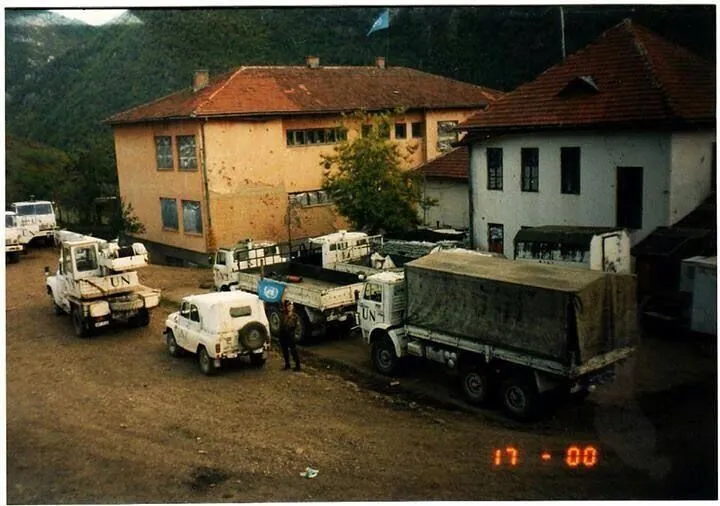
"We formed the buses and the most important thing we managed to agree on was that each bus would carry a family, so as not to scatter them on different buses. There were three convoys of 5-6 buses. They were taken to Sarajevo. I participated in the last convoy. It was the largest - 10 buses. We were driving and did not immediately realize where we were going, because we went in the other direction (Serbian drivers were driving the buses - ed.) We ended up in Srebrenica.
They stopped us near the cemetery. They wanted to make provocations there. Women came up, Serbian children. They started to shake the buses... We made warning shots. A Serbian policeman who was accompanying us approached... We had a violent conversation. Both Serbs and Muslims were afraid of us, but they respected us.
So we drove on. We drove into the forest, as I had such an association with the Carpathians, with a mountain on one side and a river flowing through. And then we came to Tuzla, which is 250 kilometers from Zepa. They handed over the civilians to the Muslim authorities," Andriy Khlusovych told UNN .
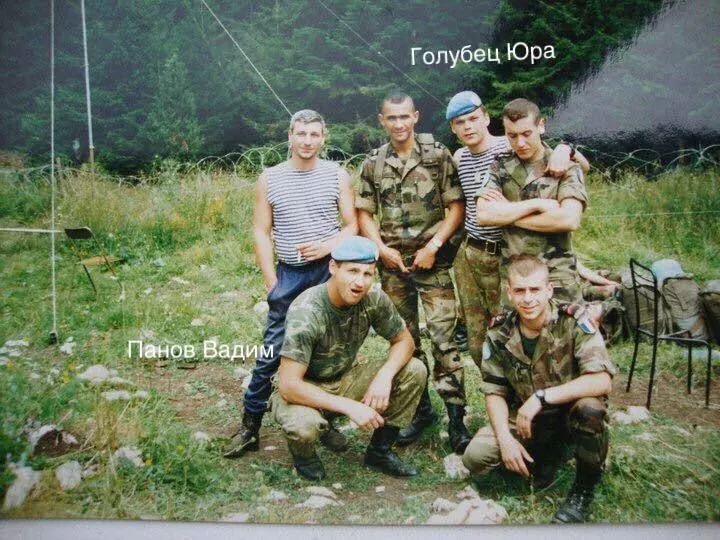
The evacuation lasted three days. According to official figures, about 5,000 people were evacuated. However, Ukrainian peacekeepers claim that there were almost twice as many.
Immediately after the evacuation was completed, the Serb military occupied Žepa, and the village was looted and almost completely burned. At the Karadžić tribunal, a figure was announced: 116 residents, of those who remained in the village, became victims of Bosnian Serbs.
It is noteworthy that after the events in Zepa, Karadzic removed Mladic from command of the army. Karadzic proclaimed himself "supreme army commander." After that, the Serbian army rapidly began to lose the war. In addition, the North Atlantic Alliance became more active, denying the UN the right to veto NATO operations in Bosnia.
Evaluation of events
Despite the fact that Ukrainian peacekeepers saved many lives, the evacuation of Zepa residents was perceived by some as a forced deportation. However, those who were involved in the processes in Bosnia at the time believe otherwise.
"Zepa was written off immediately. It was expected that Zepa would fall within hours (after Srebrenica fell). Surprisingly, it did not fall immediately. The Bosnian army had been fighting for a considerable period of time. The Bosnian leaders wanted to withdraw the population, and that's what the UNPROFOR forces did," Carl Bildt, the EU special envoy for the former Yugoslavia at the time of those events, told a conference in 2015.
In a commentary to ICTV in 2019, he said that Ukrainian soldiers acted effectively in that situation.
"It was their mission and they fulfilled it with dignity. It was important to protect the civilian population, most of whom survived," he said.
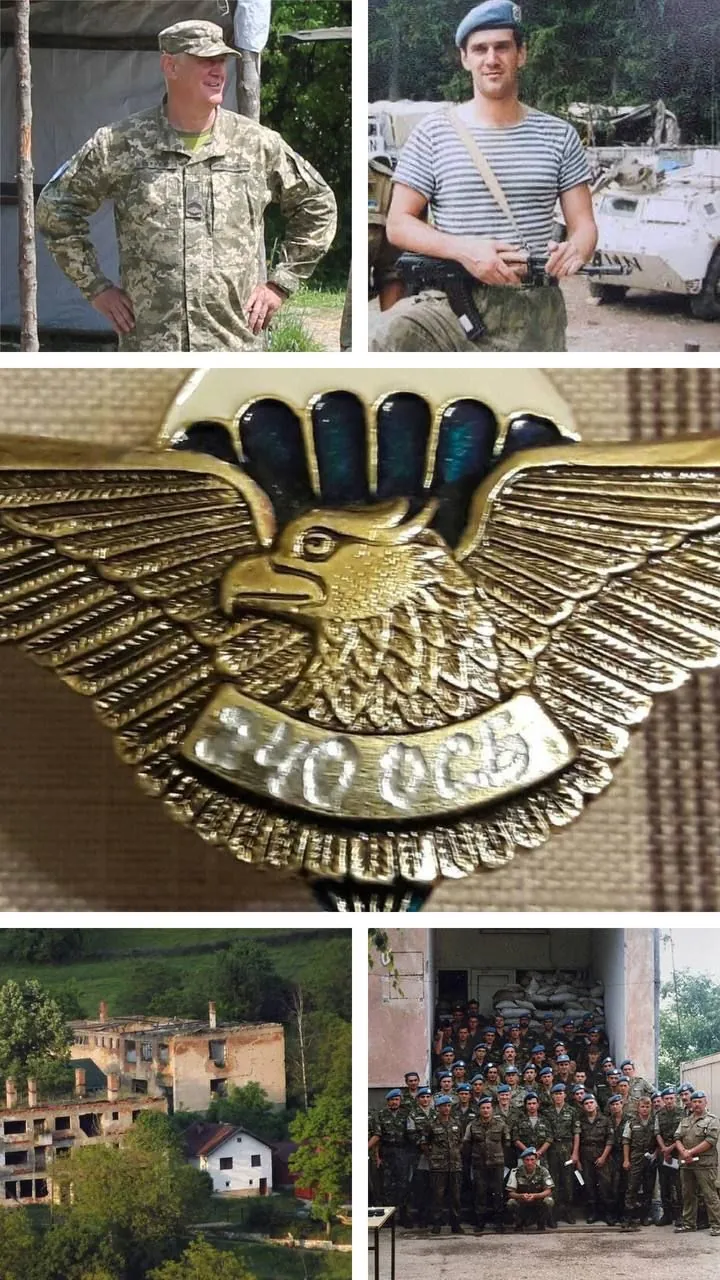
And Bildt is not the only one who thinks so. Despite this, Ukrainian peacekeepers and their undeniable heroic deeds have not yet received proper appreciation and recognition. Back in the days of Kuchma's presidency, only the then Minister of Defense Valeriy Shmarov received the award, and later, posthumously, Mykola Verkhoglyad was awarded. Other participants in these events did not receive any awards.
But despite this, some of the military who joined the peacekeeping mission in Bosnia stood up to defend Ukraine in the war with Russia.